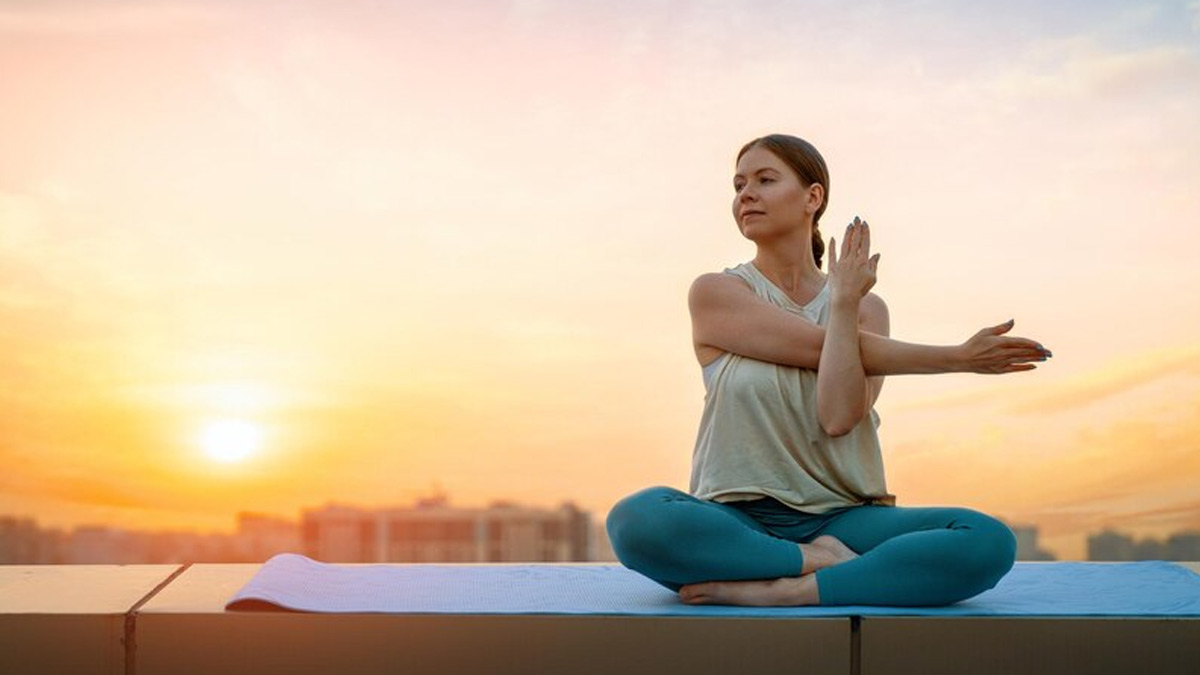
Autoimmune diseases are conditions where your immune system attacks the healthy cells of your body mistakenly. Normally, your immune system creates proteins called antibodies that protect your body against viruses, cancer cells and toxins. However, in autoimmune conditions, your immune system cannot make out the difference between invaders and healthy cells and attacks the healthy cells mistakenly.
Table of Content:-
Yoga can offer a holistic approach in order to manage autoimmune diseases. Yoga is an effective form of exercise long known for combating illness and promoting health from within. Yoga mainly promotes relaxation and connects your mind and body as it improves your overall well-being.
The John Hopkins Medicine says that yoga can help combat mental as well as physical illness for all ages. It states, “If you’re going through an illness, recovering from surgery or living with a chronic condition, yoga can become an integral part of your treatment and potentially hasten healing.”
To learn how yoga practices can help you manage autoimmune disorders, OnlyMyHealth team interacted with Himalayan Siddhaa Akshar, Founder, Akshar Yoga Kendraa, Author and Columnist, Bengaluru.
As per Akshar, Yoga helps in managing autoimmune disorders by focusing on gentle movements, breathwork, and relaxation techniques. Here are some practices that can help alleviate symptoms and promote overall well-being.
Gentle Asanas

“Start with gentle yoga poses to avoid strain on the body. Poses like Child’s Pose, Cat-Cow Stretch, and gentle twists can help increase flexibility, reduce tension, and improve circulation without exacerbating symptoms,” Akshar said.
Also read: Yoga For Gas And Bloating: 8 Yogasanas For Relieving Symptoms
Deep Breathing (Pranayama)

Deep breathing exercises help in calming the nervous system and reduce stress and stress is one of the triggers of autoimmune flare-ups. “Practice techniques like Dirga Pranayama (Three-Part Breath) and Nadi Shodhana (Alternate Nostril Breathing) to promote relaxation and balance,” Akshar said.
Meditation
Long known for calming stress, regular meditation can help you reduce inflammation and modulate the immune response as per Akshar. He said, “Practice mindfulness meditation or guided imagery to cultivate a sense of inner peace and resilience in the face of chronic health challenges.”
Restorative Yoga
According to Akshar, include restorative yoga poses that support deep relaxation and healing. Poses like Supported Bridge, Legs-Up-the-Wall, and Corpse Pose can help reduce fatigue, promote better sleep, and rejuvenate the body.

Mindfulness-Based Stress Reduction (MBSR)
“Explore mindfulness-based practices specifically designed to manage stress and chronic pain associated with autoimmune disorders. MBSR techniques, such as body scans and mindful movement, can help cultivate present-moment awareness and acceptance,” said Akshar.
Also read: Looking For Relief From Continuous Neck Pain? Try These Yoga Poses, Tips To Perform Them
Yoga Nidra

Yoga Nidra or yogic sleep is practiced to induce deep relaxation and release physical, mental, and emotional tension. Akshar suggested that practicing yoga nidra regularly can improve sleep, alleviate anxiety and promote overall well-being along with helping to manage autoimmune conditions.
Regular Practice and Patience
Consistency is key when using yoga to manage autoimmune disorders. “Aim for a regular practice, even if it’s just a few minutes each day, and be patient with yourself as you navigate fluctuations in symptoms and energy levels,” said Akshar.
Conclusion
By integrating these yoga practices into your daily routine, you can cultivate a sense of empowerment and resilience in managing autoimmune disorders while nurturing your overall well-being. “Remember to listen to your body, honor your limitations, and seek guidance from qualified yoga instructors or healthcare professionals as needed,” Akshar said. He advised to consider working with a certified yoga therapist who can tailor a yoga practice to address your specific needs and health goals.
Also watch this video
How we keep this article up to date:
We work with experts and keep a close eye on the latest in health and wellness. Whenever there is a new research or helpful information, we update our articles with accurate and useful advice.
Current Version